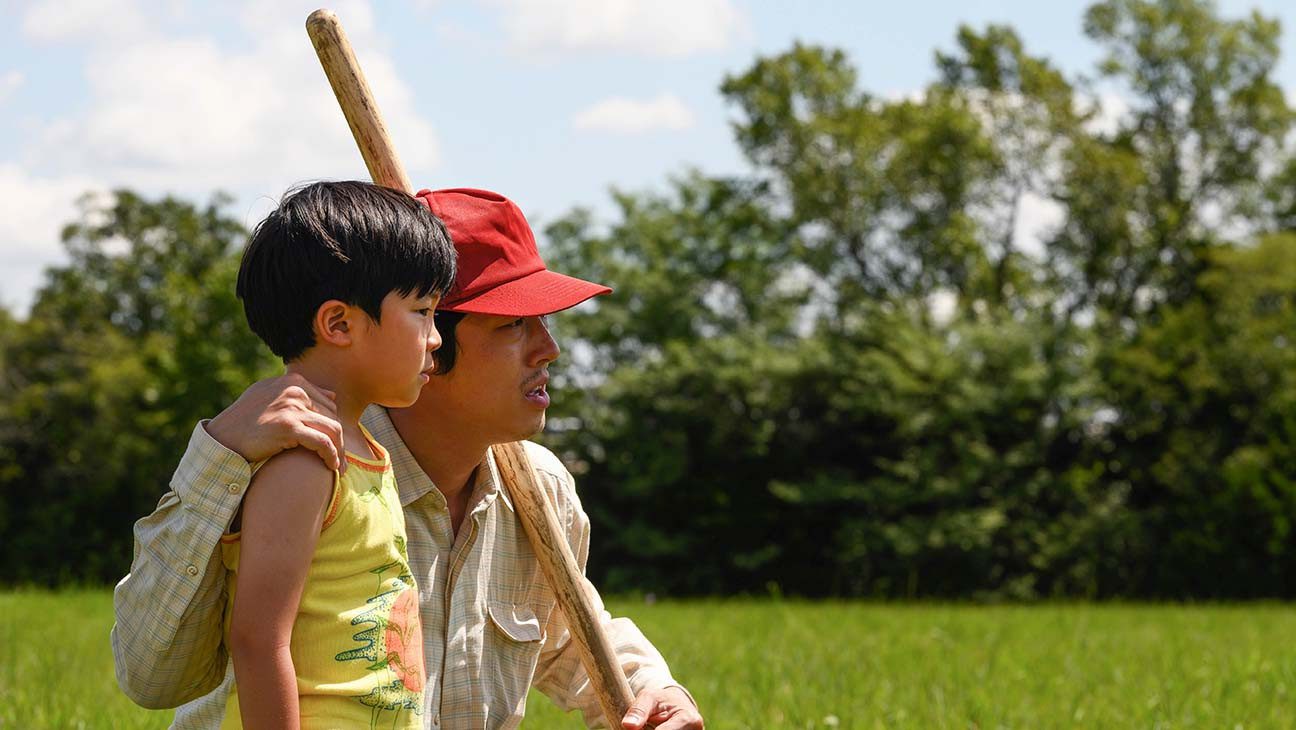Despite awards shows that miscategorize and claim otherwise (looking at you Golden Globes), Minari is an American film. The soul of its story is the textbook definition of the American Dream. Directed with heartfelt empathy by Lee Isaac Chung, Minari is an intimate story about expectation vs reality, and the calculated risks that some are forced to take when pinning the future and well-being of their family on nothing more than hope.
The old adage “grow where you’re planted” is a familiar one–it’s what Jacob (Steven Yeun) plans to do, with abundance. Having immigrated from Korea with his wife Monica (Yeri Han) and two young children, Anne (Noel Cho) and David (Alan Kim), Jacob and his family settle into the outskirts of a small Arkansas town, where he plans to start a farm. Jacob’s vision is to harvest and sell local Korean produce to small markets, and his DIY “can-do” attitude propels its rocky start.

Jacob views his newly acquired acres of land as his personal “Garden of Eden” and a ticket to generational success. However, his expectation of the farm’s promise vs the reality of it–which drains resources and money away from his family–is far from ideal. The family dynamic is put in flux as Jacob’s attention becomes predominately set on work, causing Monica to grow more isolated and resentful. To ease the tension, it’s decided that her mother Soonja (Yuh-jung Youn) will come from Korea to live with them and help raise the children, much to David’s initial detest.
Where Minari really finds its emotional weight is the time we spend with the family and their home life, specifically the relationship between David and his grandma. Faced with so many life changes, cultural and otherwise, David isn’t mature enough to articulate his feelings, so he ends up taking his frustrations out on Soonja via cheeky pranks. It’s a familiar story of testing boundaries and the way Lee Isaac Chung captures David’s spitfire precociousness and childhood innocence feels extremely personal. From there, the film builds and swirls with emotional tension, coming to a crescendo on the night an accidental fire breaks out and threatens everything Jacob has worked so hard for. It’s in this moment when he has an epiphany: is “financial success” worth more than his well-being and safety, or has greed been masquerading as his relentless work ethic?

In addition to rich sweeping cinematography by Lachlan Milne, the costume design and score also leave lasting impressions. Jacob’s red hat–a symbol that had been polluted by MAGA mobs–reclaims its status as a morally powerful accessory. Working as hard as he can to make ends meet and provide for his family, Jacob’s hat, chosen by costume designer Susanna Song, represents the blood, sweat, and tears of all immigrants who come to America with dreams of a better future and, in this case, literally growing their money. Composer Emile Mosseri provides another unforgettable score that perfectly encapsulates the feeling of growth and rebirth with melodic strings and delicate piano keys.
Like the Minari, or crops of any kind, Lee Isaac Chung uses this beautiful cinematic vessel to show us that we grow where we’re planted; we can flourish anywhere so long as we nurture ourselves. This sentiment is the thesis statement of Minari, embracing cultural differences is the only way to create a richly symbiotic tapestry of American life. Now, someone tell that to the HFPA.
Distributed by A24, Minari is available to watch on A24’s virtual screening room this Friday, February 12, 2021.
Morgan Rojas
Certified fresh. For disclosure purposes, Morgan currently runs PR at PRETTYBIRD and Ventureland.

